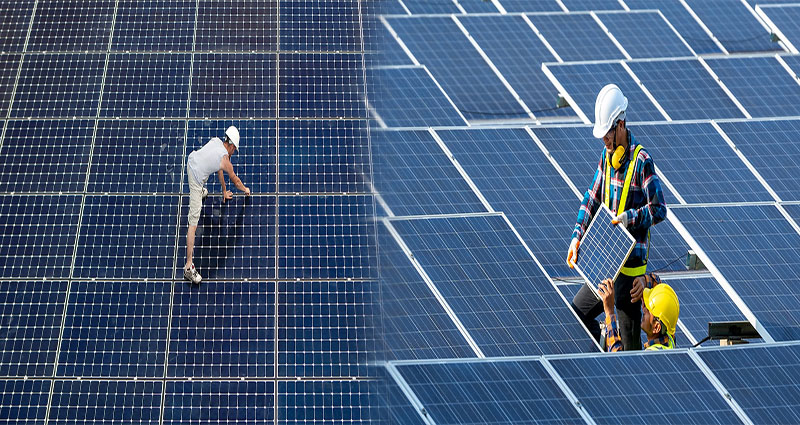Solar energy is rapidly gaining popularity as a sustainable and cost-effective solution for homeowners. Residential solar panel installations not only help reduce electricity bills but also contribute to a greener environment. If you are considering installing solar panels in your home, it’s essential to understand the cost analysis involved. In this article, we will explore the process of residential solar panel installation and provide a comprehensive cost analysis to help you make an informed decision.
The Process of Residential Solar Panel Installation
- Initial Assessment: Before delving into the installation process, it is crucial to assess your home’s viability for solar panel installation. Factors such as roof orientation, shading, and structural integrity are evaluated to determine the feasibility and efficiency of the system.
- Design and Permitting: Once the initial assessment is completed, a customized solar panel system is designed according to your energy needs and available roof space. The design is then submitted for permitting and approval by local authorities.
- Equipment Procurement: After obtaining the necessary permits, the solar panels, mounting equipment, and inverters are procured. This may involve selecting reputable manufacturers and ensuring the equipment meets industry standards for efficiency and durability.
- Installation: A team of professional installers will carry out the installation process. This involves mounting the solar panels onto your roof, connecting them to the electrical system, and ensuring proper wiring and grounding. The installation team will conduct tests to verify the system’s functionality and compliance with safety regulations.
- Utility Connection and Net Metering: Once the installation is complete, the solar panel system is connected to the utility grid. This enables you to draw electricity from the grid when needed and sell excess power back to the grid through net metering. Net metering allows you to receive credits for the surplus electricity your system generates.
Cost Analysis of Residential Solar Panel Installations
When considering residential solar panel installations, it is essential to analyze the costs involved. Here are the key factors to consider:
- Upfront Costs: The upfront costs include the price of solar panels, mounting equipment, inverters, and installation labor. The major cost driver is the size of the system, which depends on your energy consumption and available roof space. On average, residential solar panel installations can range from $15,000 to $25,000. However, it is important to note that prices vary depending on location, system size, and equipment quality.
- Federal and State Incentives: To promote renewable energy adoption, governments often offer incentives to homeowners installing solar panels. These incentives, such as tax credits, can significantly offset the upfront costs. Additionally, some states offer grants or rebates that further reduce the overall investment.
- Return on Investment (ROI): While the upfront costs can seem substantial, solar panel installations provide long-term savings on electricity bills. The ROI depends on factors such as system efficiency, energy consumption, and the duration of ownership. Typically, homeowners recover their investment within 5-10 years, after which they enjoy significant savings over the lifespan of the system (usually 25-30 years).
- Maintenance and Insurance: Solar panels require minimal maintenance, with occasional cleaning to ensure optimal performance. Some installation companies offer monitoring services to keep track of system efficiency. It is also advisable to consider insurance coverage to protect against damage or theft of the solar panel system.
Residential solar panel installations offer numerous benefits, including reduced electricity bills, environmental sustainability, and potential financial savings. However, it is important to conduct a cost analysis to determine the feasibility and return on investment. Consider the upfront costs, available incentives, and long-term savings to make an informed decision. Consult with reputable solar installation companies to understand the specific costs and incentives available in your area. By investing in residential solar panel installations, you not only contribute to a greener future but also potentially reap significant financial rewards in the long run. Embrace the power of solar energy for your home and become a part of the renewable energy revolution.












